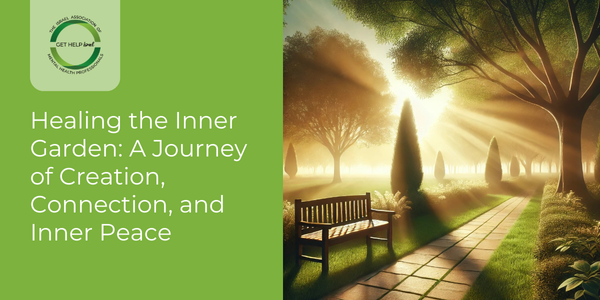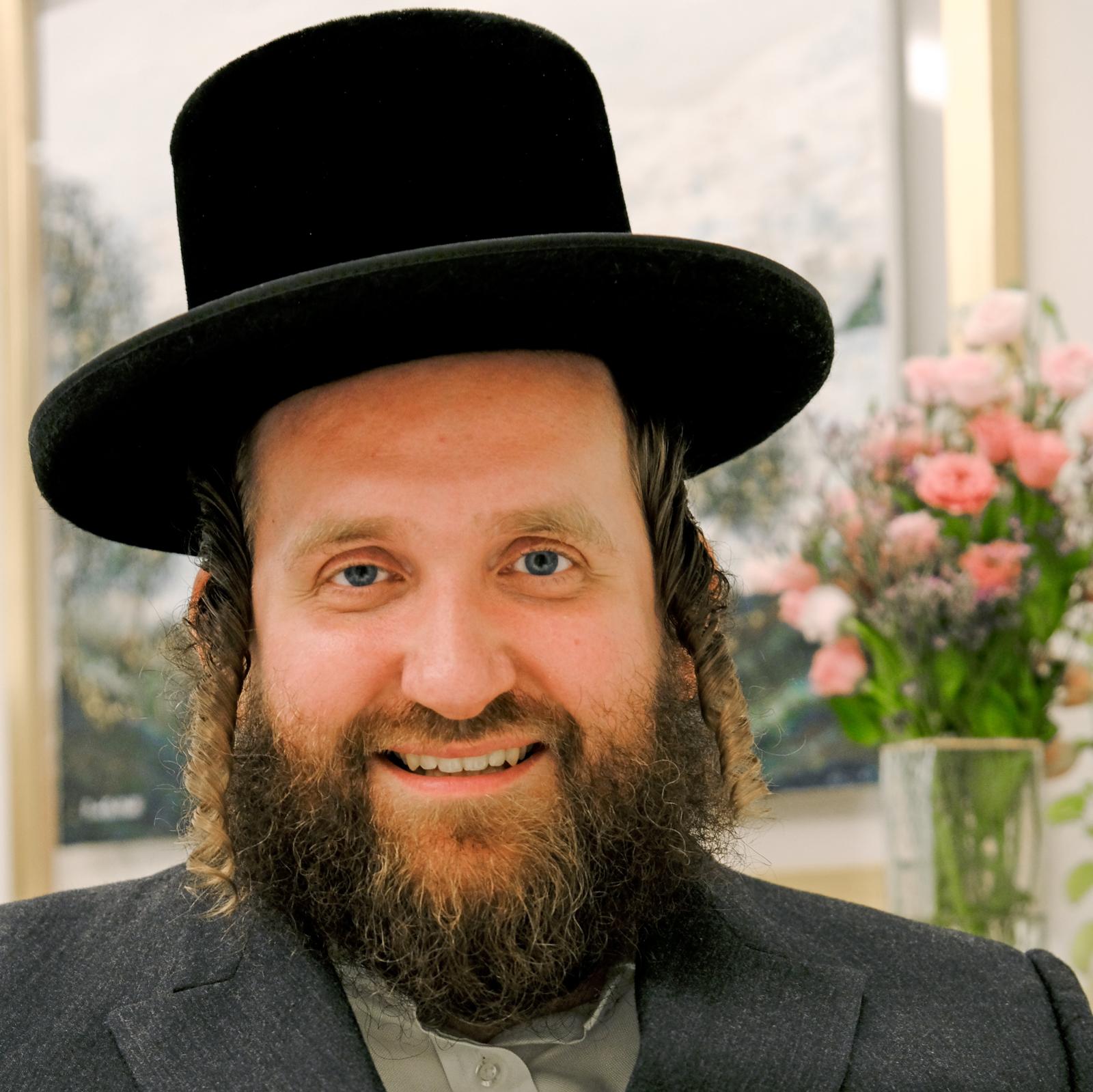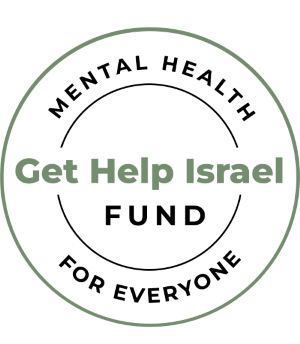Healing the Inner Garden: A Journey of Creation, Connection, and Inner Peace

Note: This article explores how spirituality and therapy intersect, drawing from Jewish teachings to offer insights that can benefit readers from all backgrounds seeking personal growth and inner peace.
Each of us, at some point, feels an inner pull to seek meaning. It may come through a conversation, a moment of struggle, or a quiet reflection. For some, it’s through ancient teachings; for others, through modern therapeutic insights. For many, it’s a desire to live more fully, deeply, and authentically. This search for connection and purpose bridges spirituality and personal growth, weaving together the wisdom of creation stories, Chassidic thought, and contemporary therapy.
The Torah opens with the story of creation, beginning from a place of tohu v’vohu—chaos and void. Each of us knows this chaos: the unresolved questions, scattered pieces, and conflicting parts within us. We feel it as stress, as the inner battle between different “selves”—the parts that seek connection, protect, or resist change. Just as creation begins with light shining into darkness, therapy offers us a space to bring light into hidden parts of our lives, where clarity can emerge from what once felt like confusion.
In therapy, we might call this practice “unblending.” Just as the Divine separates light from darkness, we learn to recognize and untangle our different inner parts. In Internal Family Systems (IFS), each part—whether a protective critic, a vulnerable side, or a cautious self—holds a story. It has a purpose, even if it no longer serves us. By observing these parts with compassion, we learn to hear their wisdom without letting them dominate our lives. Unblending gives us the power to be present, bringing calm, light, and acceptance to places we may have kept hidden or misunderstood.
The creation story soon introduces Adam and Chava (Eve) in the Garden of Eden. Together, they embody the complexity of being human: reason and instinct, responsibility and desire. They live in the garden “לעבדה ולשמרה”—to cultivate and protect—a dual purpose that echoes our responsibility to tend to our inner and outer worlds. But with the encounter of the Eitz HaDaat (Tree of Knowledge), they experience a profound shift, one that mystical thought sees as a fragmentation of the soul. This Divide marks the beginning of a lifelong journey of tikkun, or repair, a process described as our essential mission.
This concept of tikkun is central in therapy. It’s what drives us to revisit and re-integrate parts of ourselves we’ve buried—our hurt places, defensive habits, or insecurities—to bring them into harmony. Just as Adam and Chava tended the Garden, we tend our inner landscapes, learning to accept and integrate even the most difficult parts. Through this work, we bridge divisions within us, bringing wholeness to ourselves and peace to our relationships.
In the rhythm of our week, Shabbat offers a profound moment of renewal and reconnection. Shabbat invites us to stop, breathe, and allow ourselves to simply be. The Torah describes Shabbat as “Shabbat Vayinafash”, a time when the soul finds rest and alignment. On a therapeutic level, Shabbat gives us a chance to “unblend” from the parts that work, worry, or protect. It’s a practice of returning to our true Self—the calm, compassionate core within that is capable of holding all our parts with love and understanding.
Therapy provides tools that help facilitate these moments of healing. Internal Family Systems (IFS) guides us to recognize and understand the “parts” within ourselves, helping us build inner peace through acceptance and integration. When we allow each part to feel seen and understood, we are doing the work of tikkun on a deeply personal level, gradually repairing the parts that feel exiled or fragmented.
In some cases, therapeutic methods like ketamine-assisted psychotherapy (KAP) open new paths for healing. During KAP sessions, clients often gain perspective on entrenched narratives or traumas, seeing them with fresh eyes. It creates space for the parts of us that are often hidden to reveal their truths and release their burdens. Much like the stages of creation, KAP allows us to see ourselves layer by layer, moving toward a sense of wholeness. Both IFS and KAP provide frameworks for healing, helping us repair our inner worlds, one layer at a time.
The Chassidic tradition, especially as taught by the Baal Shem Tov and Rebbe Nachman, offers a unique perspective on this inner work. They speak of transforming darkness into light, viewing life’s challenges as invitations for growth and connection. For Rebbe Nachman, every descent has the potential to lead to an ascent. He teaches that moments of struggle aren’t merely obstacles but opportunities to uncover and elevate the sparks of goodness within us. Each moment of insight, each act of compassion, contributes to tikkun, the healing of our soul and, by extension, the world.
This, then, is the purpose of therapy—not only to understand ourselves better but to bring light to the places that need healing, to unearth compassion for parts of ourselves that may have felt unloved or unwelcome. Every time we approach an inner conflict or a painful memory with curiosity instead of judgment, we are doing tikkun, moving closer to wholeness. And in doing so, we’re participating in a sacred mission that stretches back to creation itself, carrying forward the work of repair and renewal.
Ultimately, each moment of compassion and self-understanding is a step toward aligning ourselves with a timeless purpose. Whether through the peace of Shabbat, the wisdom of IFS, or the release offered by KAP, we move toward a state of balance, kindness, and inner quiet. And as we do, we bring healing not only to ourselves but also to the world around us.
May this journey of exploration and integration offer moments of insight and healing, inspiring us all to continue the sacred work of creation and repair in our lives and in the lives we touch.
About the Author
Yosef Zev Braver is a therapist with a background in Accelerated Experiential Dynamic Psychotherapy (AEDP), Internal Family Systems (IFS), and Ketamine Assisted Psychotherapy (KAP). Committed to creating supportive, confidential spaces for clients, Yosef Zev integrates elements of Chassidic thought into his practice, helping clients find inner peace through spiritual and therapeutic healing. He is based in Israel, offering online sessions in Yiddish, English and Hebrew.




